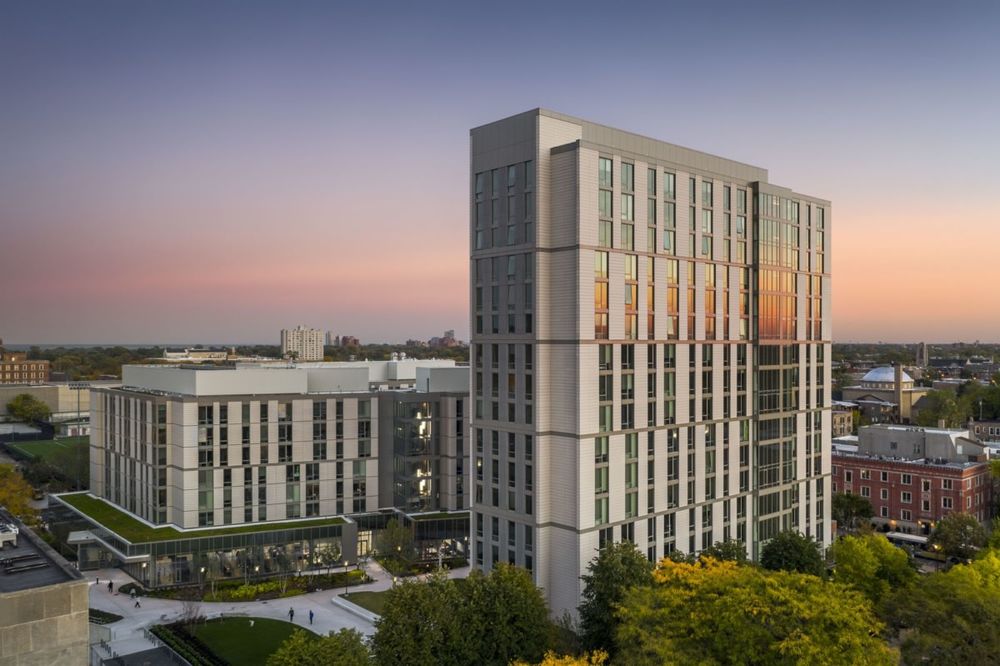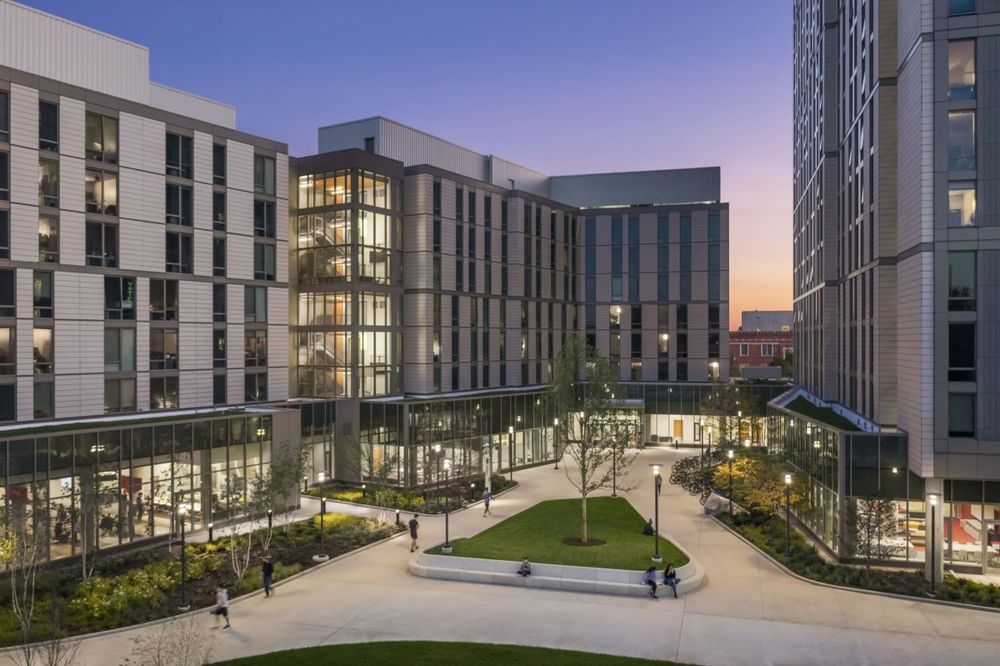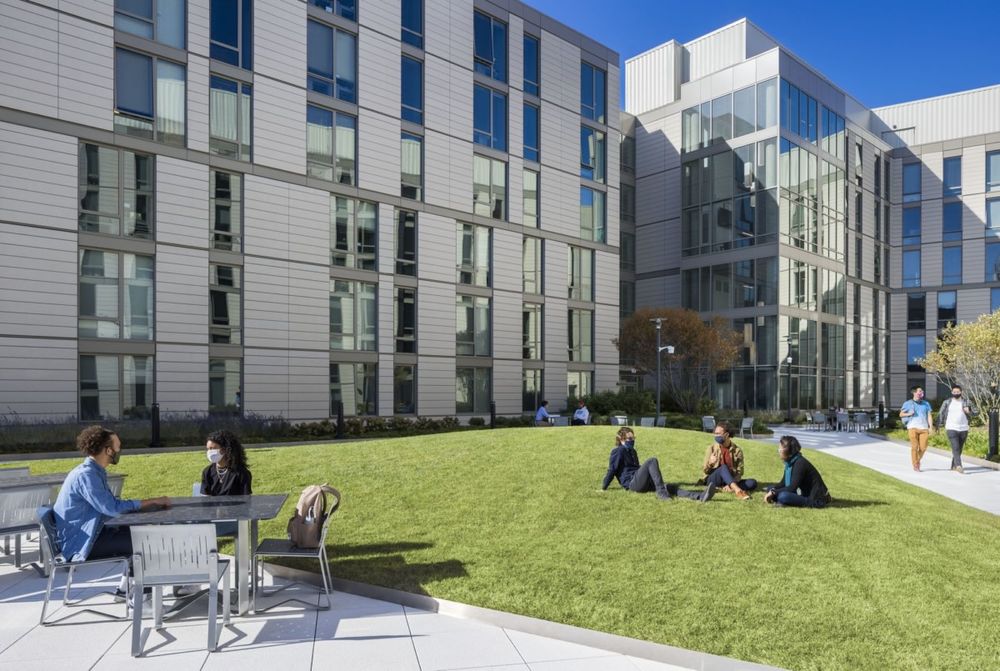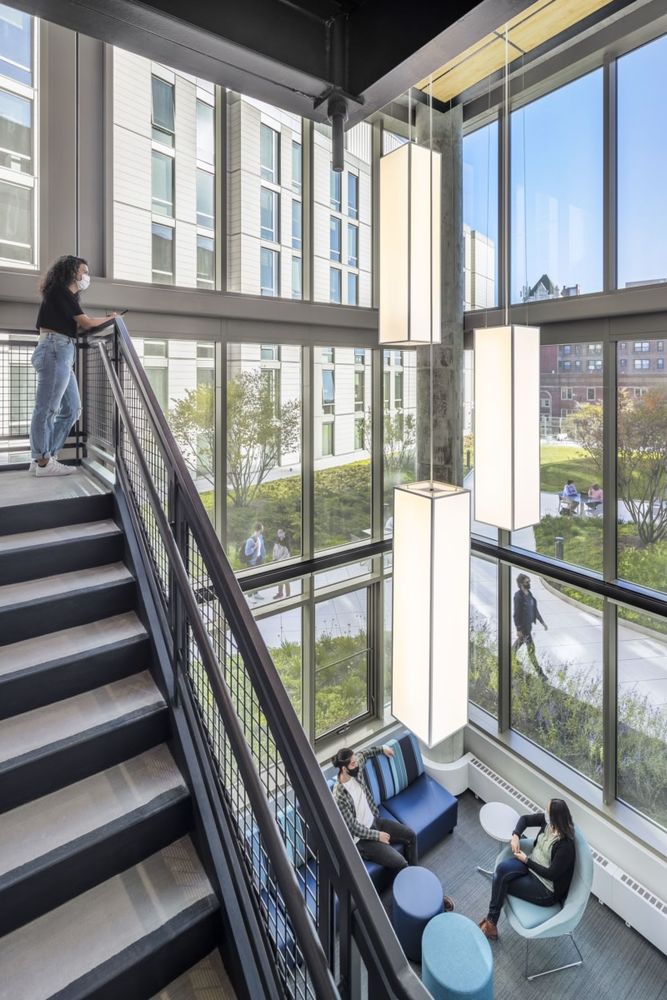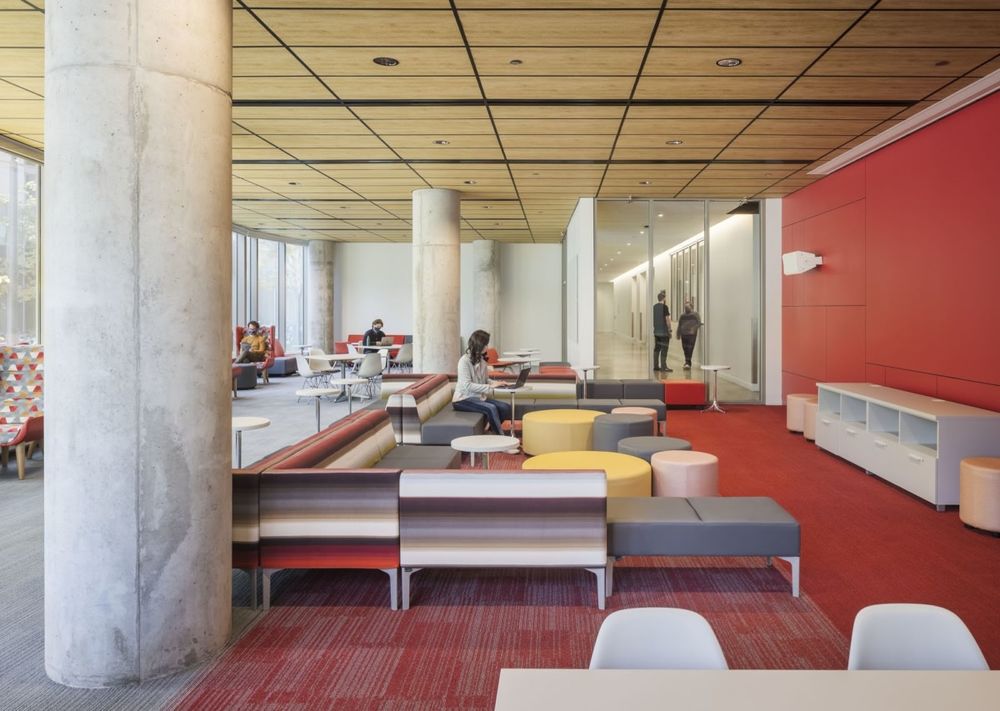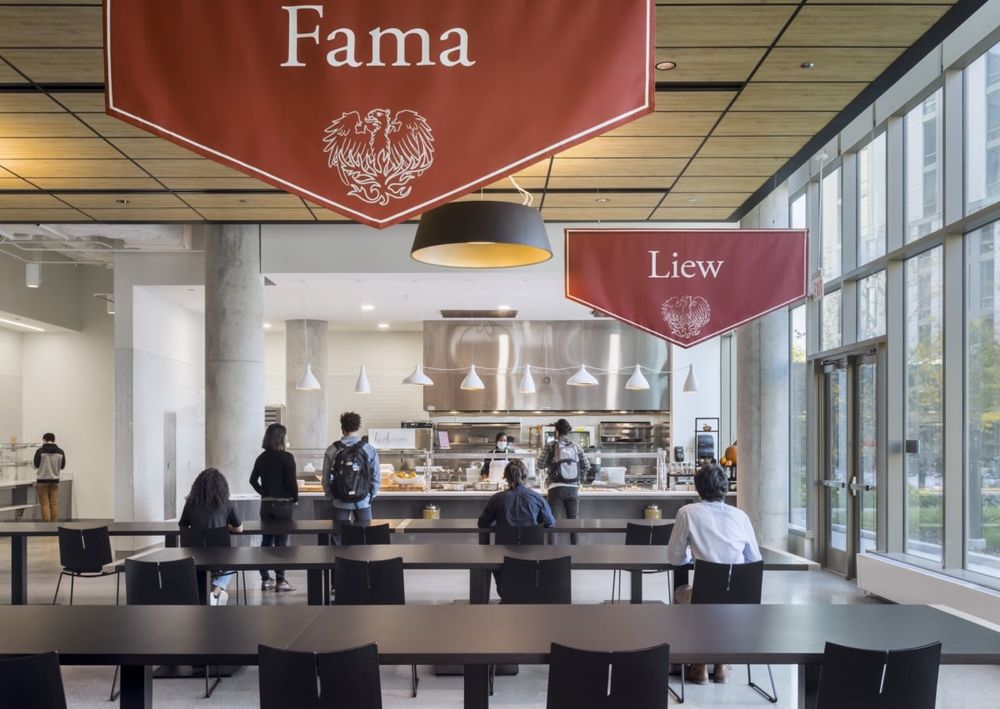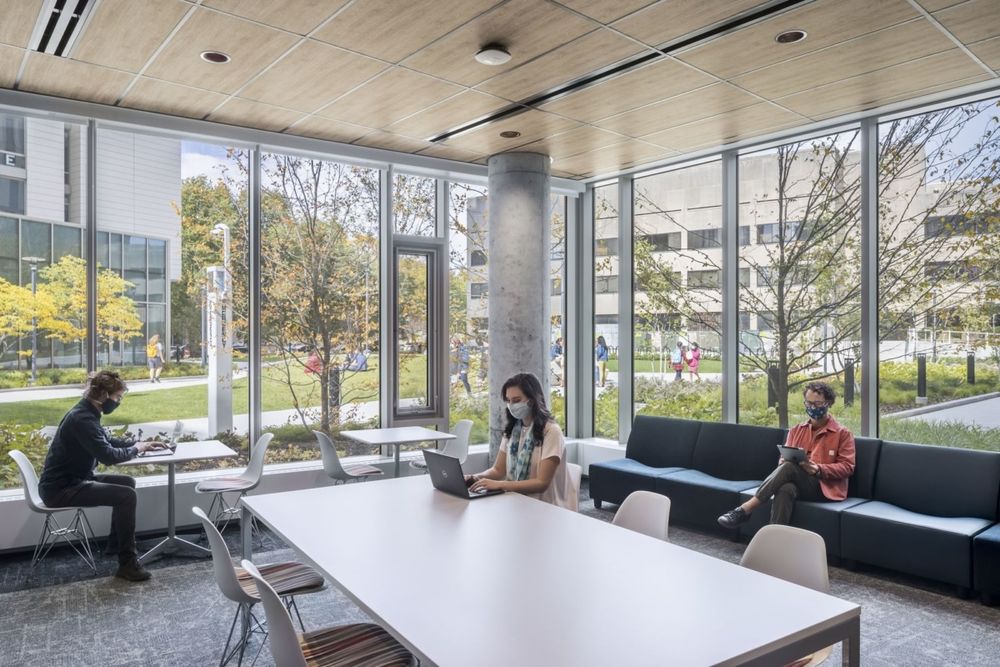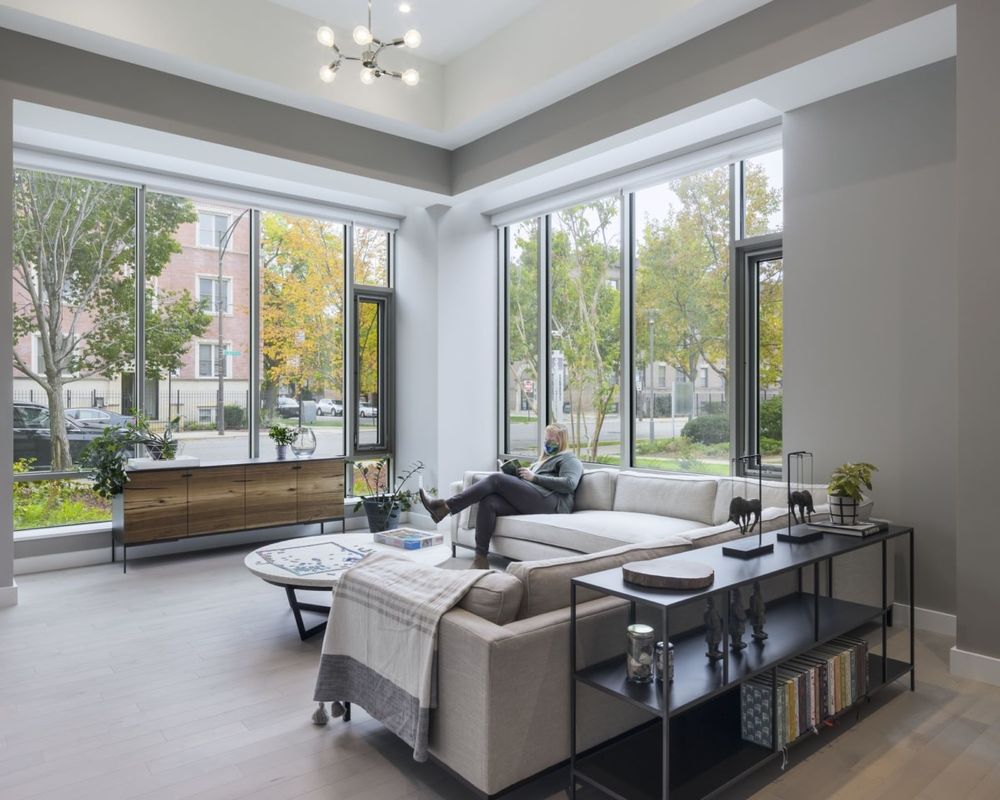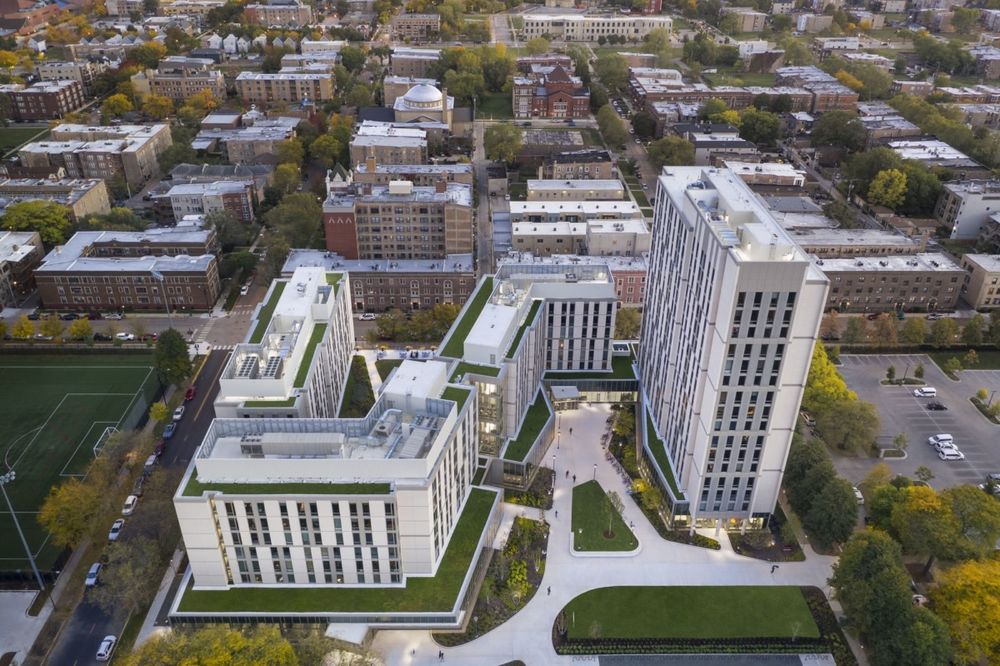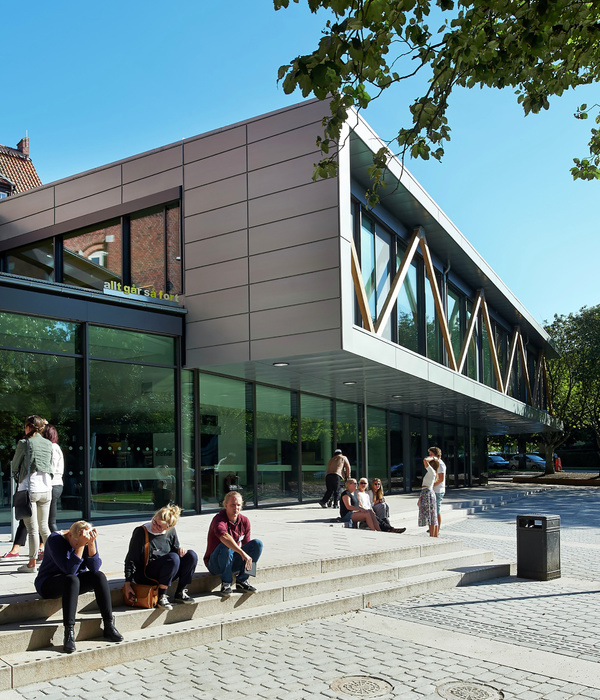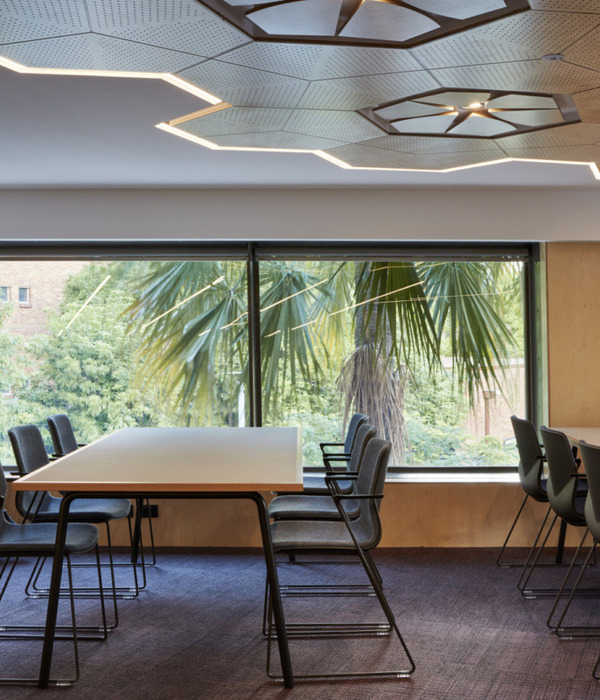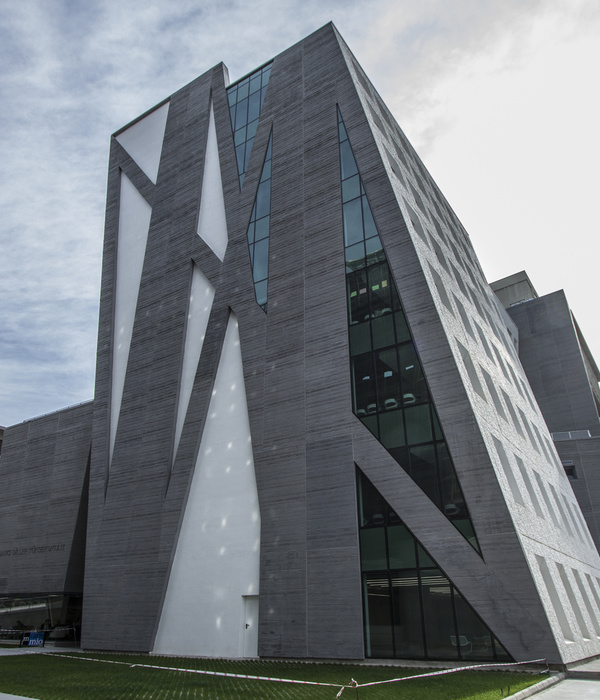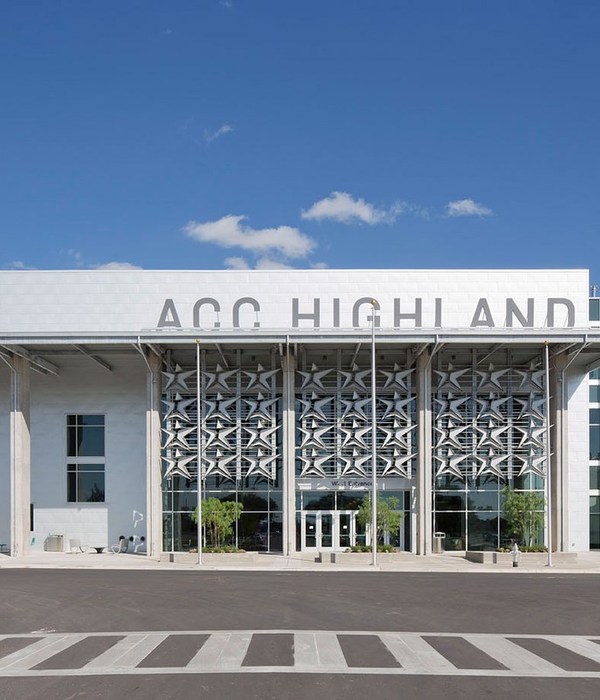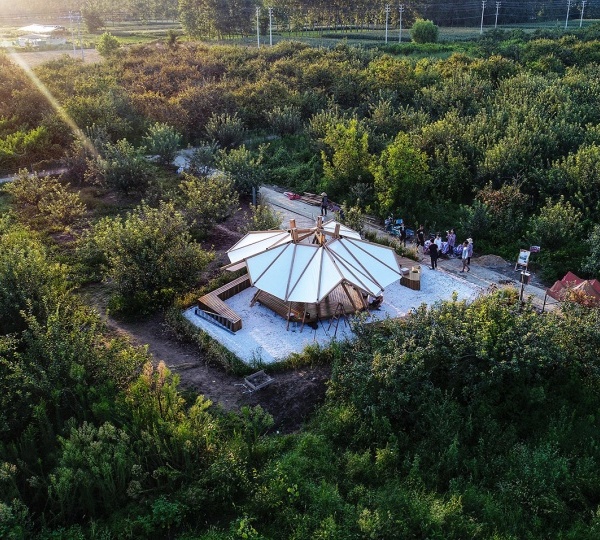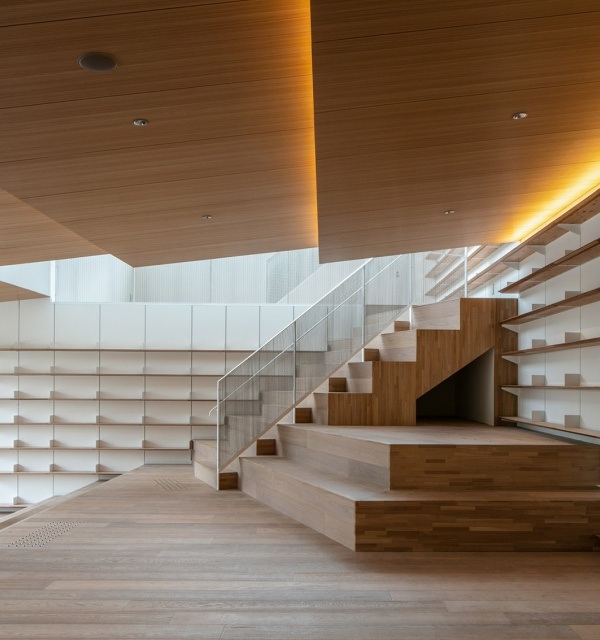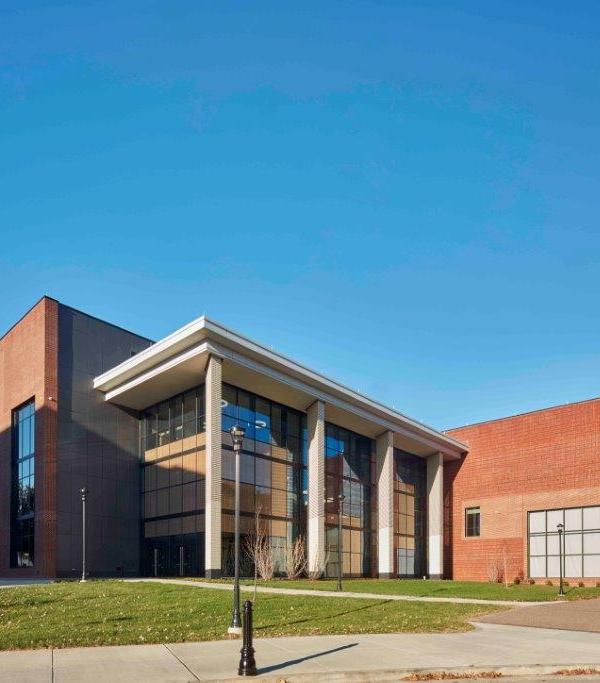芝加哥大学木湖住宅与餐饮中心 | 校园建筑新地标
Elkus Manfredi Architects was tasked with completing the Woodlawn Residential and Dining Commons at the University of Chicago in Chicago, Illinois.
The University of Chicago (UChicago) is a private urban research university with a longstanding history of academic excellence that promotes critical reflection and lively debate. While residing on campus, UChicago’s undergraduate students live in Houses of 80 to 100 students. The House system is a distinctive aspect of the University and allows students to live, learn, and dine together in communities that foster personal and intellectual growth.
The Woodlawn Residential and Dining Commons architect’s brief called for living and dining accommodations that promote active learning environments for 1,300 undergraduate students and address a critical need for more on-campus housing. With the new residential commons, the University aimed to connect the campus to the adjacent Woodlawn residential neighborhood, which is characterized by brick and graystone structures from large single-family residences built in the 1890s to larger apartment buildings built last century and today. In addition, the new facility had to relate to the campus’s blend of 19th, 20th and 21st century world-class architecture. Elkus Manfredi’s recent contribution to the built campus joins this century’s contributions by globally-respected architects and firms, including Diller Scofidio + Renfro, JAHN, Rafael Viñoly Architects, Studio Gang and Tod Williams Billie Tsien.
UChicago pursued a public-private partnership (P3) developer-led design-build delivery model with Capstone Development Partners, Harrison Street Capital, Elkus Manfredi Architects, and Turner Construction to realize its vision for affordable student housing on the southern edge of its campus. Elkus Manfredi joins the distinguished group of campus architects with a design that celebrates the school’s vaunted House system in physical form, breaking down the 1,300-bed program into discrete communities discernable from the exterior. With additional amenities such as study spaces, unifying social spaces, and a 650-seat dining commons, the facility has created a new destination for students on the south edge of campus.
Students moved into the new residence halls amid the COVID-19 pandemic in September 2020. With this additional residence hall, the University moved closer to achieving its goal of housing more than 70% of undergraduates on campus.
Design: Elkus Manfredi Architects Contractor: Turner Construction Company Developer: Capstone Development Partners\ Photography: Brad Feinknopf
Design: Elkus Manfredi Architects
Contractor: Turner Construction Company
Developer: Capstone Development Partners\
Photography: Brad Feinknopf
11 Images | expand images for additional detail
